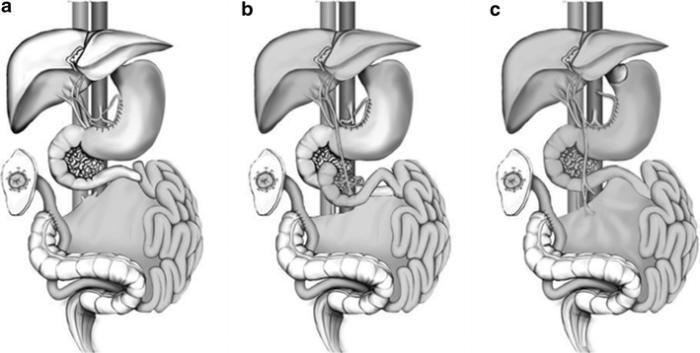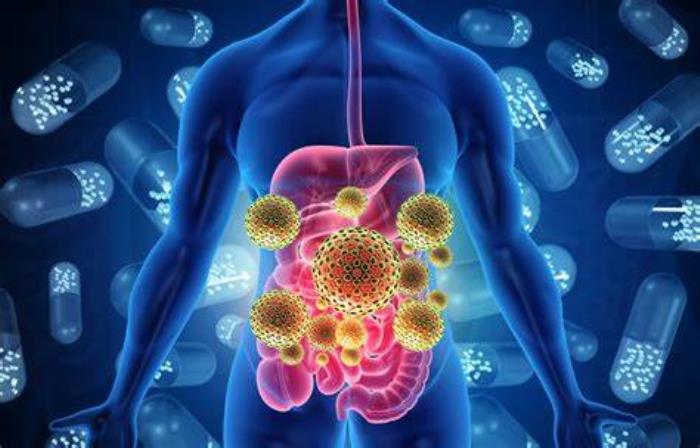The intestine plays a crucial role in digestion and nutrient absorption. The small intestine is responsible for absorbing essential nutrients, vitamins, and minerals from food, while the large intestine helps in water and electrolyte reabsorption. A healthy intestine is vital for overall health, supporting metabolism and immune function.
Medical disclaimer: This content is for general awareness and does not replace a doctor’s consultation. For diagnosis or treatment decisions, consult a qualified specialist.
How Intestine Transplantation Restores Digestive Function
Intestine transplantation restores digestive function in patients with end-stage intestinal failure by providing a healthy, functional organ. This procedure allows the body to regain the ability to absorb nutrients from food, reducing dependency on Total Parenteral Nutrition (TPN) and improving the patient’s overall quality of life.
The Effect of Intestine Transplant on Nutrient Absorption
After an intestine transplant, patients often experience improved nutrient absorption, which can lead to better weight gain, improved energy levels, and overall health. However, it may take some time for the new intestine to fully integrate into the digestive system, and ongoing monitoring is essential to ensure proper nutrient intake.

Improving Gastrointestinal Motility After Intestine Transplant
Post-transplant patients may face challenges with gastrointestinal motility, a critical function in moving food through the digestive tract. Medications and lifestyle changes, along with physical therapy, may be used to help stimulate motility and improve digestive efficiency, supporting better overall function of the transplanted intestine.
Post-Transplant Digestive Health: What to Expect
After intestine transplant surgery, patients can expect significant improvements in their digestive health, though the transition can take time. They may experience some digestive disturbances, including changes in bowel movements and absorption. Regular follow-ups and dietary adjustments are essential to optimize post-transplant health.
The Role of the Transplanted Intestine in Digestive Enzyme Production
The transplanted intestine takes over the production of digestive enzymes necessary for breaking down food and absorbing nutrients. Although enzyme production may take some time to reach optimal levels post-transplant, the restored intestine ultimately improves overall digestion and nutrient processing.
Managing Digestive Complications After Intestine Transplant
Digestive complications, such as diarrhea, malabsorption, or bloating, can occur after an intestine transplant. These issues are typically managed with medications, dietary adjustments, and close monitoring by healthcare providers. In some cases, further interventions may be necessary to ensure the transplanted intestine functions effectively.
Changes in Bowel Movements and Digestion After Transplantation
After an intestine transplant, patients may experience changes in bowel movements and digestion, including changes in frequency, consistency, and digestive efficiency. These changes are part of the body’s adjustment process as it adapts to the new organ.
Impact on Digestion for Patients with Short Bowel Syndrome
For patients with short bowel syndrome, intestine transplantation can dramatically improve digestive function by restoring the ability to absorb nutrients more effectively. However, some patients may still require supplemental nutrition or adjustments to their diet.
How Intestine Transplantation Affects Digestive Hormone Regulation
The transplanted intestine can alter digestive hormone regulation, impacting enzymes and bile production. Over time, this adaptation helps regulate digestion, but some patients may experience hormonal imbalances that require management.

Nutritional Challenges Post-Transplant and How to Overcome Them
Post-transplant patients often face challenges in nutrient absorption, requiring a tailored nutrition plan, supplementation, and monitoring by dietitians. Addressing deficiencies in vitamins and minerals is crucial for long-term recovery.
Maintaining Healthy Digestion with Post-Transplant Medications
Medications, particularly immunosuppressants, can affect digestion and gut health. Managing side effects such as nausea, constipation, or diarrhea is important to ensure digestive stability and maintain overall health.
The Role of Probiotics and Gut Flora After Intestine Transplant
Probiotics may play a role in restoring and maintaining healthy gut flora following intestine transplant surgery. A balanced microbiome helps optimize digestion, prevent infections, and support immune health.
Preventing Gastrointestinal Infections and Malabsorption Post-Transplant
Gastrointestinal infections and malabsorption can occur post-transplant due to immunosuppressive medications. Preventive measures such as proper hygiene, prescribed antibiotics, and monitoring nutrient absorption are vital.
The Psychological Impact of Digestive Changes Post-Transplant
Digestive changes after an intestine transplant can have a psychological impact, leading to anxiety or depression. Emotional support, counseling, and patient education are essential to help patients cope with the physical and emotional adjustments.
The Long-Term Effects of Intestine Transplant on Digestion
Long-term effects can include adjustments in bowel movement patterns, nutritional absorption, and digestive efficiency. With time, the transplanted intestine may become more efficient, but some patients may continue to experience digestive challenges.
How the Transplanted Intestine Adapts Over Time
The transplanted intestine gradually adapts to its new environment. This includes improving motility, increasing nutrient absorption, and adapting to changes in digestive hormone production. Regular monitoring helps ensure the organ functions optimally.
Advances in Digestive Health Management for Intestine Transplant Patients
Recent advancements in digestive health management, such as improved immunosuppressive therapy, personalized nutrition plans, and microbiome therapies, have enhanced digestive outcomes for intestine transplant patients.
The Importance of Regular Monitoring for Digestive Function After Transplant
Regular monitoring, including imaging and laboratory tests, helps track digestive function and detect any complications such as malabsorption, infections, or rejection. It is critical for maintaining long-term health and improving quality of life.
Advances in Intestine Transplant Techniques in India
Explore advances in intestine transplant techniques in India. This blog covers the latest innovations and improvements in surgical techniques, patient care, and technology in India, making intestine transplants more effective and accessible.
Risks and Complications of Intestine Transplant Surgery
Understand the risks and complications of intestine transplant surgery. This blog highlights potential challenges such as rejection, infection, and long-term health concerns that patients may face, along with strategies to manage these risks effectively.
Coping with Digestive Health Challenges Post-Intestine Transplant
Patients may face ongoing digestive health challenges such as irregular bowel movements or malabsorption. Coping strategies may include diet adjustments, physical therapy, and continuous medical support.
Best Intestine Transplant in India
The Best Intestine Transplant in India offers a vital treatment option for patients with severe intestinal failure, combining advanced surgical techniques and comprehensive post-transplant care.
Best Intestine Transplant Hospitals in India
The Best Intestine Transplant Hospitals in India are equipped with cutting-edge technology and multidisciplinary teams, ensuring seamless patient care and successful transplant outcomes.
Intestine Transplant Cost in India
The Intestine Transplant Cost in India is competitively priced, providing access to world-class treatment with transparent pricing and comprehensive care packages.
Best Intestine Transplant Surgeons in India
The Best Intestine Transplant Surgeons in India are highly skilled and experienced, ensuring precise surgical interventions and personalized patient care for optimal recovery and long-term success.
FAQ Section
1. How does intestine transplantation improve digestive health?
Intestine transplantation restores normal digestive function by replacing a nonfunctional or insufficient intestine, improving nutrient absorption, and allowing patients to better digest food.
2. What changes in digestion can be expected after an intestine transplant?
Patients may experience changes in bowel frequency, stool consistency, and digestive comfort as the body adapts to the transplanted organ. These changes are typically temporary.
3. How does a transplanted intestine affect nutrient absorption?
The transplanted intestine improves nutrient absorption by restoring or enhancing the absorption of essential nutrients, which was previously limited in conditions like short bowel syndrome.
4. Are there any long-term digestive complications after an intestine transplant?
Long-term complications can include chronic malabsorption, digestive discomfort, and infections. Regular monitoring and dietary adjustments are essential to manage these issues.
5. What role do digestive enzymes play after an intestine transplant?
Digestive enzymes are crucial for breaking down food and absorbing nutrients. Post-transplant, patients may require enzyme supplements to support proper digestion and nutrient absorption.
Intestine transplant surgery, while potentially lifesaving, involves several risks and complications. These include acute rejection, infections, bowel obstructions, bleeding, and complications from immunosuppressive medications. Long-term risks may include chronic rejection, kidney dysfunction, and cancer. Understanding these risks is crucial for patients and their families to make informed decisions and prepare for post-surgery care. Risks and Complications of Intestine Transplant Surgery
India has made significant strides in the field of intestine transplantation, with several hospitals leading the way in adopting advanced techniques. These advancements include laparoscopic and robotic-assisted surgeries, which offer minimally invasive options with faster recovery times and reduced complications1. Hospitals like Apollo Hospitals and PACE Hospitals have multidisciplinary teams that provide comprehensive care, from pre-transplant evaluation to post-transplant management. These innovations have contributed to improved patient outcomes and increased survival rates. Advances in Intestine Transplant Techniques in India
Post-transplant infections are a significant concern and require vigilant management to ensure successful outcomes. Key strategies include antimicrobial prophylaxis, regular monitoring for signs of infection, and prompt treatment of any infections that arise. Patients must adhere to strict hygiene practices, avoid exposure to potential sources of infection, and attend all follow-up appointments for ongoing assessment and care. Early detection and intervention are crucial to prevent complications and improve long-term survival rates. Managing Infections After Intestine Transplant Surgery